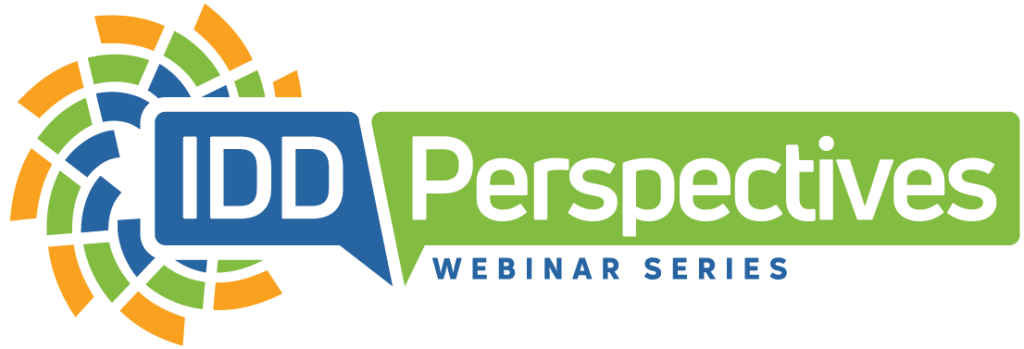Have a Question? Call (727) 473-3201

The Fatal Five Fundamentals
Agency Staff Online
Training Course
- DURATION: 4-6 HRS
- ONLINE
- 126,543 CURRENTLY ENROLLED
Learn to spot and report The Fatal Five
Real-world scenarios and solutions
200+ interactive questions to ensure the learner’s knowledge
12-month agency licensing offered
This eLearning course is intended for non-clinical caretakers who require fundamental knowledge on the Fatal Five fundamentals in order to provide appropriate care and support.
IntellectAbility collaborated with the University of Georgia and Georgia Department of Behavioral Health and Developmental Disabilities, with guidance from the Department of Justice, to produce a series of eLearn courses discussing the Fatal Five conditions considered preventable causes of death in people with IDD. This online course is part of our comprehensive spectrum of developmental disabilities training resources, and includes targeted training for staff working with intellectually or developmentally disabled adults and children.
What Are the Fatal Five Conditions?
The Fatal Five (previously known as the Fatal Four) refers to the top five conditions linked to preventable deaths of persons in congregate care settings or in community-based residential settings. While the issues can differ in order of frequency depending on the population being represented, the five conditions most likely to result in death or health deterioration for persons with Intellectual and Developmental disabilities are:
1
aspiration
2
bowel obstruction
3
dehydration
4
seizures
5
infection/sepsis
What You’ll Gain
Being aware of the Fatal Five fundamentals is critical for providing adequate support and for appropriately targeting treatment needs. While this eLearning course will assist all agency staff, it is intended for training non-clinical support staff in the support of adults and children with intellectual and developmental disabilities.
Through this course, agency staff and caregivers are empowered to rapidly spot the top five conditions linked to preventable deaths of persons in congregate care settings or in community-based residential settings, and to take appropriate action.
Students can move at their own pace while exploring videos, interactive exercises and visual aids. To assist in training, this course features content designed to engage the student while improving learning retention.



Targeted Learning
Self-paced eLearning designed to give clinical support staff to Nurse Practitioners insight into the unique health risks of those with IDD.

Helping Those With IDD
We provide tools and training to those who support people with vulnerabilities helping them replace risk with health and wellness.

Empowering Agency Staff
Designed to empower agency staff of all educational levels to observe, make informed decisions and take preventive action.
Synopsis by Module
Aspiration
- Module Length: 30 Minutes
After this module, you should be able to:
- Recognize the basic structures of the respiratory tract.
- Identify the signs and symptoms of aspiration and what may cause it.
- List 2 action steps to take if aspiration occurs.
Bowel Obstruction
- Module Length: 37 Minutes
After this module, you should be able to:
- Recognize the basic structures of the gastrointestinal tract.
- Identify signs of healthy and unhealthy bowel function.
- List 2 action steps to take if bowel obstruction occurs.
Dehydration
- Module Length: 27 Minutes
After this module, you should be able to:
- Define dehydration and recognize the importance of fluid intake.
- Identify the common signs and symptoms of dehydration.
- List 2 action steps to take if dehydration occurs.
Seizures
- Module Length: 36 Minutes
After this module, you should be able to:
- Define seizure and seizure types.
- Record accurate observation of seizure activity.
- List 2 action steps to take when a seizure occurs.
Infection
- Module Length: 31 Minutes
After this module, you should be able to:
- Know what an infection is and how it can occur.
- Identify the signs and symptoms of an infection.
- List 2 action steps to take when an infection occurs.
Gerd
- Module Length: 31 Minutes
This module covers the essential information on Gastroesophageal Reflux or GERD. It covers the causes, risks and actions that can minimize those risks, especially aspiration.
After this module, you should be able to:
- Define GERD.
- Identify how to recognize symptoms of GERD.
- List 2 action steps to take when a person experiences GERD.
When to Act
- Module Length: 33 Minutes
After this module, you should be able to:
- Learn common conditions that may be present in persons with I/DD.
- Recognize 2 signs of each condition.
- List 2 action steps to take for each of the conditions discussed.


Real student feedback
“I would definitely recommend this training to my direct support staff.“ M.C.
“This training is significant for health care providers, but equally significant to direct care workers, families, caregivers.” L.C.
“Wish a lot more people knew about this training. I will be passing it on.” S.P.
“I think this program is excellent and think all people in leadership should have to complete this training. It has broadened my scope of concerns. I know better how to watch for health care signals and to care better for clients. I have taken this every year and hope that more people will take advantage of this training.” R.M.
“Our staff enjoyed this training. Very thorough and engaging. Would highly recommend to others in our unique caregiving position.” F.C.
“This program was perfect for our team and I’ve shared with a few colleagues as well. We feel more confident and the training helped our support staff understand ways to provide our clients with a better level of care.” H.G.


Have a Question? Call (727) 473-3201
Monday through Friday: 9am-5pm EST




